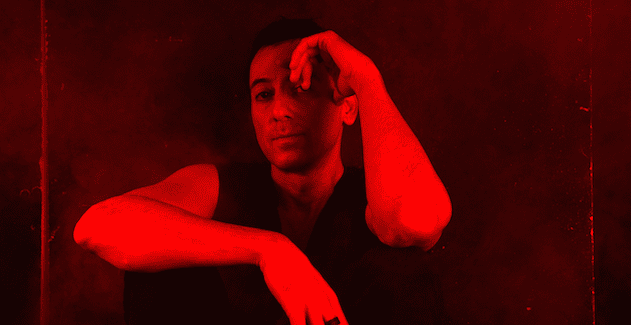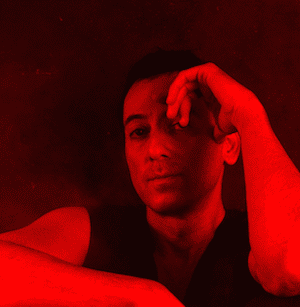Industry veteran Ali Shirazinia on the lessons learned from Yoshitoshi, his personal manifesto for SCI+TEC and why he wants to reunite Deep Dish.

Attack: You’re uniquely placed to talk about your experience of dance music over the last few decades. Let’s start by talking about SCI+TEC. Musically, SCI+TEC is obviously distinct from what you did in the past as part of Deep Dish and Yoshitoshi. You’re a few years into the life of the label now. When you launched it, what did you see as the mission statement?
I'd love to re-ignite Deep Dish again because the way we left things was just bad.
Dubfire: There was no mission statement other than to have initially launched it as a showcase for my work and to outsource every function of the label, eliminating the need for staff which became problematic during the Yoshitoshi days. But it soon became clear that SCI+TEC was an outlet to discover and develop new talent and put out the best unsigned music out there. And as the label is an extension of my personal taste, SCI+TEC has in some ways been defined now by a particular ‘sound’ or ‘style’.
How pleased are you with the success of the label so far?
It depends on your definition of success! Does the label make money? No. Do I have complete creative and business control (something I didn’t have in the Deep Dish era)? Yes. Am I inundated by both established and unknown artists with demos and pleas to get a release on the label? Yes. Have I created a family of like-minded artists? Yes. Have we been recognised by the dance music press as having had an impact on today’s electronic music scene or artists? No. So I cannot easily define the label’s success.
Are you still involved at all in running Yoshitoshi with Sharam?
I haven’t been involved in Yoshitoshi or its affairs in maybe ten plus years, so no.
How does the experience with SCI+TEC differ to that with Yoshitoshi?
I have complete creative and business control and have learned some valuable lessons since those early years about how to own and run your own label.
There’s a tendency in some quarters to talk about the last few years of the American ‘EDM explosion’ as though it’s a completely new phenomenon, forgetting that the US invented house and techno and artists like you have had successful careers for a long time now. How different is your experience of the north American dance music scene now compared to what you saw in previous boom times?
I don’t think that the term ‘EDM’ refers to what I or my peers are, or have been, doing. That’s a term that’s been thrown around recently to define the mainstream music and event/festival movement in the USA through the success of dance music crossing over into pop, R&B and hip-hop circles. It’s simply an identifier or calling card which the media have coined because the ‘movement’ has been so financially successful for the promoters and artists this time around. We’ve had various ‘booms’ before but not to this extent, so this time around I’d say it’s a bit different.
And globally, do you see much difference?
Huge difference. You won’t find EDM in Ibiza – the epicentre of the global dance music movement – where things are far more balanced.
How has your own attitude toward dance music changed over the years? You’ve continued to progress musically for a long time now. Do you think that’s just because of your own tastes changing or are you perhaps tuning in to different elements which have always been there but you maybe didn’t identify with in the past?
It may be a bit of both but not because I failed to identify them in the past. Deep Dish may have strayed from its initial sound but that’s just evolution, and although I’ve changed and evolved over many years, my roots and foundations have stayed firmly intact. I’ve always had an appreciation for a well-written pop song; not formulaic, bubble-gum pop which seems to have recently tainted dance music as well, but pure-emotion pop. And I’ve always been into the alternative, left-field, underground, edgy, obnoxious, noisy, ambient side of things as well. These styles were far more suited to my tastes and were the places I escaped to, from my teenage years to this very day.
So, after being involved in dance music for this long, how do you stay ambitious?
I’ve never been one to sit around and pat myself on the back. I always think that it wasn’t good enough and that I can do better. And other people inspire me to work harder, smarter, faster and more efficiently than I do.
Are there still any big things you’d like to achieve? What are they?
I’m presently working on a Dubfire live show to debut in April 2014 and it’s the first time I’m doing this sort of thing so I’m eager to see how I can pull it off. I’d love to re-ignite Deep Dish again because the way we left things was just bad; I’d like to preserve its legacy and see if there’s any creative fire left. I’d like to host my own weekly events in Ibiza at some point but most likely after the live shows and Deep Dish reboot; perhaps in 2015. And I’d simply love the luxury of time to be able to sit in my studio, stimulate my creativity and get into a good working rhythm with no outside distractions.

04.54 AM
There’s something about his attitude that completely turns me off. I can’t even pay attention to him at all anymore.
01.11 PM
“You won’t find EDM in Ibiza” – Really??
10.02 PM
I think his views were quite balanced and realistic. He comes off as a totally normal person in this interview. good job attack mag
06.36 PM
I agree that he comes off balanced and realistic. Unfortunately, I find the article lacking slightly in depth. Here is a guy with many stories who is articulate and hopefully willing to share. Since Attack was privileged enough to get some questions in, I would have liked some deeper insight into the man and his journey. Although a completely different piece, I enjoyed his “How I Play” on DJTT.
03.23 AM
I’m missing some tech talk